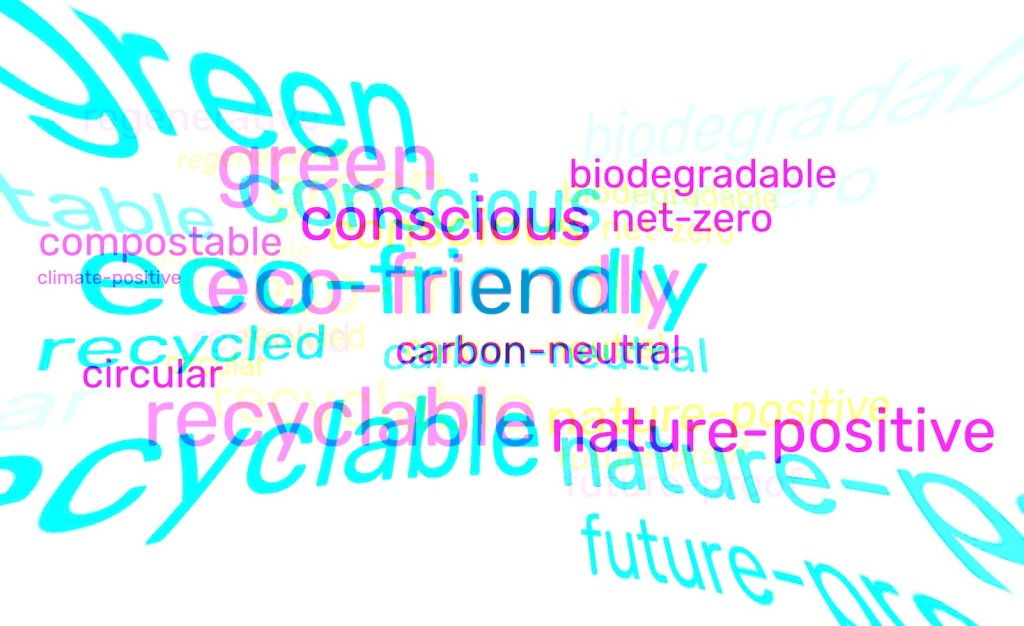14 sustainability clichés to retire in 2025
Introducing the Trellis Glossary of Overused and Underwhelming Communication hampering your messaging. Read More

- Jargon obscures accountability.
- Feel-good language can backfire.
- Specificity builds credibility.
Ready to disrupt an industry? You’ve already plucked the low-hanging fruit. It’s time to meet the moment. Drill down, run the numbers and think outside the box. But to truly move the needle, you’ll need to break down silos and align with other game changers.
If the above clichés read like nails on a chalkboard, you’re ahead of the curve (last one) when it comes to recognizing annoying business jargon. The sustainability profession is rife with lingo that lacks specificity, obscures accountability and alienates outsiders. Feel-good adjectives ring hollow. Acronyms distract those not in the know. Worse, the sloppy use of aspirational buzzwords could get you into legal trouble for greenwashing.
Most of us are guilty at some point, if we’re being honest, and the first step to recovery is recognition. The second step? Memorizing the following glossary — and avoiding the worst offenders in sustainability-speak.
Carbon neutral by 20__ — This means little to a layperson — and less to any professional who knows the difference between principled near-term steps and “progress through offsets.”
Circular — The latest glib term for a complex idea is for too many people synonymous with “recyclable.” Which it’s not — and can’t be if the goal is to create and maintain truly waste-neutral ecosystems.
For a better tomorrow — Picture a sunrise in a fossil fuel ad. Now picture yourself using a less hackneyed phrase.
____________-friendly — Waving is friendly. But whether it’s “earth-,” “eco-” or “carbon-,” it will take much more than Midwestern manners to shift paradigms.
Green — Yes, it’s the color of leaves. But also most slime, some radioactive waste and the odd alien. Something vague enough to cover so much can’t be genuinely meaningful.
Nature-positive/climate-positive — Positive is good! (And too often unquantifiable — or a dodge.)
No net loss — Since when is less bad really a good thing?
Saving the planet — The Earth will be fine. What’s in trouble are humans.
Science-based — Sounds rigorous, but it’s pretty much meaningless unless it’s third-party validated.
Future-proof — Nobody knows what lies ahead, so what makes you think you can brace for it?
Greenwashing — Obviously, excessive usage of this term is not as bad as the act itself but sometimes it sure feels that way.
Leverage — As a noun or verb, this stale chestnut is pretty much on every industry’s Jargon Bingo card. Let’s keep it off ours.
Recyclable — Technically, almost everything is recyclable. Practically, most everything won’t be unless systems exist that make it possible. See also biodegradable and compostable.
Regenerative — Appreciating how natural systems self-perpetuate does not overcome the fact that this term is ill-defined and barely validated.

Subscribe to Trellis Briefing
Featured Reports

The Premier Event for Sustainable Business Leaders
















